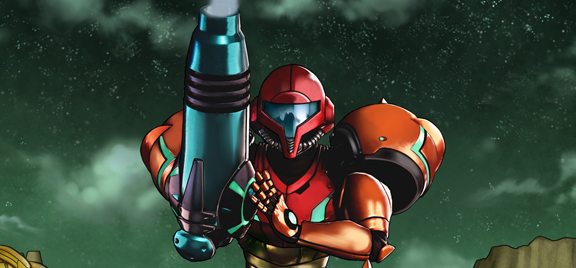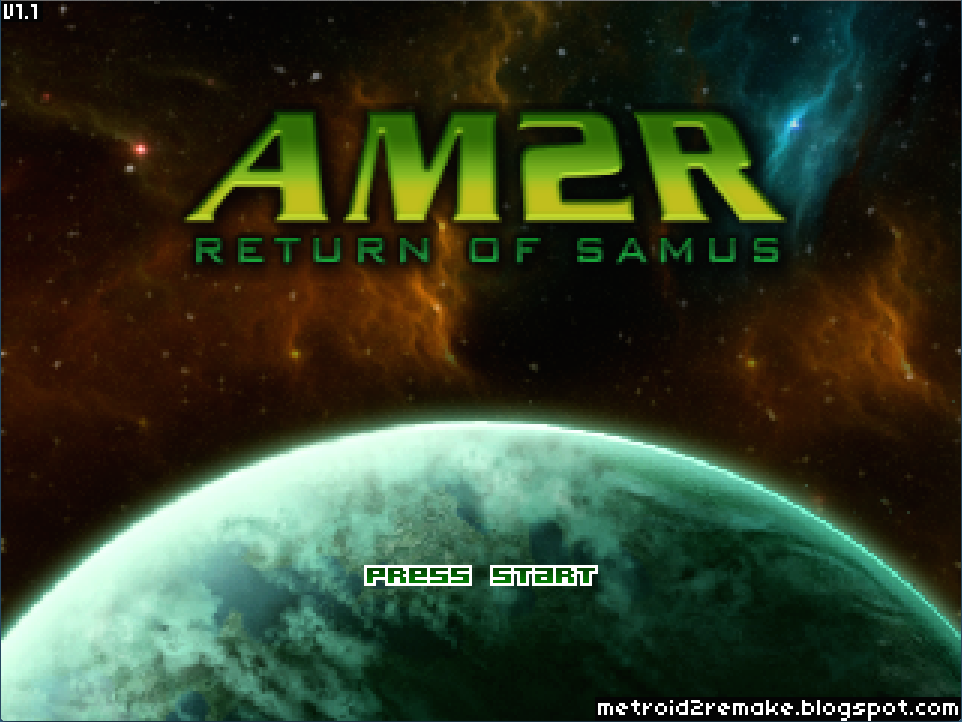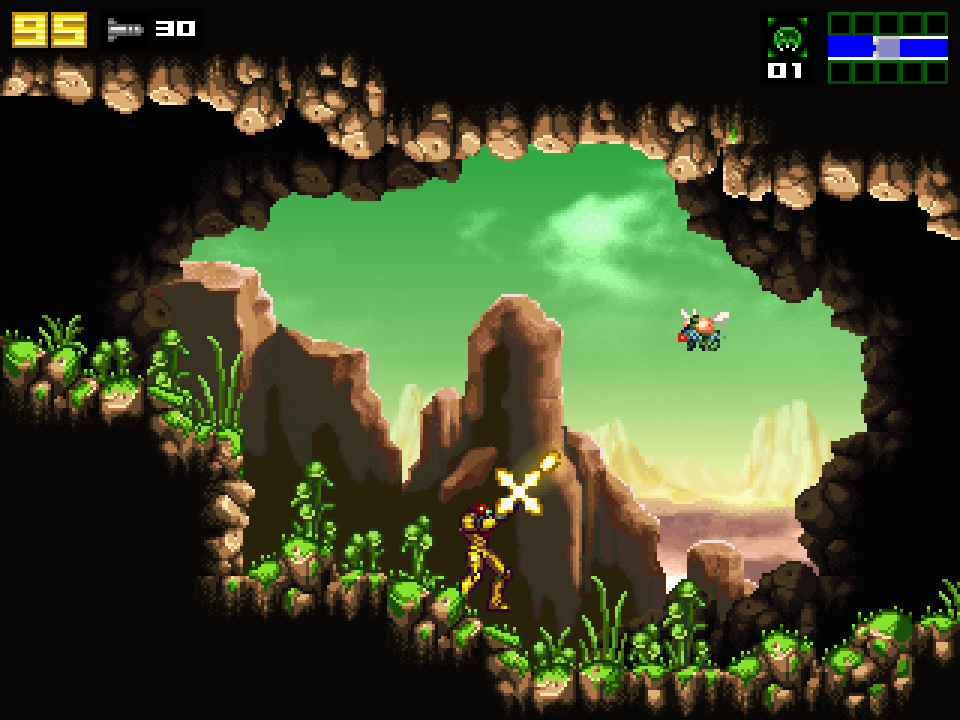Originally published on Nintendo Castle.

Nintendo surprised us all at E3 by announcing Metroid Prime 4, but they surprised us even more with the reveal of the Metroid II remake everyone in the Metroid community has been clamoring for. But why exactly is it that fans desired a remake to begin with? And is MercurySteam really up to the task?
We at Nintendo Castle have taken these considerations into account and put the original Gameboy outing up to the pedestal. We also had a look to see just what fans themselves wanted from a remake with the oft-praised and controversial Another Metroid 2 Remake. Finally, we put MercurySteam to the test and analysed their first Metroidvania styled effort with Castlevania: Lords of Shadow - Mirror of Fate, to see if they’re really up to the task.
Over the next few months, we hope to take you on a trip down memory lane, or maybe even your first ever exposure to this often forgotten classic amongst its newer, more well received peers. We will be marking the return of Samus, have you?
Check out Part 1 and Part 3 of this series!
Part 2: Another Descent

Last time we left off with one of the lesser played entries in the Metroid series, which many felt was deserving of a second chance. With the successful reimagining of the original game with 2004’s Zero Mission, people were outright demanding that Nintendo do the same with Metroid II. For the longest time Nintendo declined it the chance, so fans took it upon themselves to have a stab at remaking it themselves.
Many projects spawned after Zero Mission, with one of them humorously jabbing at the fact by dubbing the project “Another Metroid 2 Remake”. However, projects died, people realised they couldn’t manage making a game of their own and the idea slowly faded into obscurity, except for Another Metroid 2 Remake. Come August 6th 2016, Metroid’s 30th anniversary, it became the only Metroid II fan project to actually see a 1.0 release. Was the dedication to the cause worth it? Or is it something to ignore like the rest of them?
Of course not.
Without sugar coating it, Another Metroid 2 Remake (shortened to AM2R for simplicity’s sake) defines what a remake should be in the same vein as Zero Mission did 12 years prior. It’s phenomenal that such a feat was accomplished by (almost) one man, Milton “DoctorM64” Guasti, with such high quality and attention to detail. The project started some time in 2005, as outlined in Milton’s first blog post, before becoming public in 2008. It initially started out very much like a Zero Mission inspired affair, but eventually evolved much past that. Milton spent over ten years working on AM2R and the level of polish makes it truly shine.
Despite the sheer dedication and love for his work, not everyone was delighted by the game. A mere day later Nintendo’s legal council issued a copyright claim on download hosts. Being the internet, the game was up and nothing could really stop it. Undeterred, Milton produced a 1.1 patch for the game, but was ultimately sent a full cease and desist in September. Despite the controversy, and the sudden hate Nintendo received for their actions, Milton encouraged fans not to be angry and instead support Meroid II in the hopes Nintendo would produce their own remake (which they now have with Samus Returns).
With the history lesson out of the way, let us go about describing the game itself. Us saying it is a phenomenal fan contribution alone won’t cut it, so we shall explain just why this project is so important to the Metroid community and why it is worth your time to try it out for yourself.

First and foremost, the sheer visual overhaul is completely obvious from the get-go. Comparing 1991 Gameboy tech to a 2016 release is just incomparable. All the technical setbacks the Gameboy brought with it are gone. Repeating tilesets and rooms have long since gone, each area now feels completely unique and totally recontextualised. Metroid II simply had “Phase 1”, “Phase 5” and so on, but AM2R makes areas out to be hydro stations, robot factories and a dense technological monolith dedicated to Chozo society. New areas have even been added to the fray, meaning there are new experiences for people who played the original. The map has been redesigned while still using the same basic framework, with previous overlaps being completely removed with a more sprawling map to explore.
Naturally, the music has had a complete overhaul, which is a sigh of relief as the Gameboy outing had a distinct lack of memorable music to speak of. Inspired heavily from the Metroid Prime series, the music has a much more mature and atmospheric flavour. A fine example would be the Golden Temple theme, going from a somewhat hokey, disjointed jumble of notes into a grand Chozo Ruins inspired epiphany. The music also evolves as you progress, particularly the main tunnel theme which grows more complex as you travel deeper into SR388.
AM2R’s gameplay takes many cues from Zero Mission, with fast and responsive controls granting the player a lot of freedom in movement, a very important feature for the genre. It’s possible for players to climb up a single wall by repeatedly jumping off its surface, making sequence breaking an easy feat for veterans. Many aspects of the original have been greatly fixed, like the sluggish Spider Ball and clunky Space Jump, to the point where they are no non-issues.
The design is a major focus too, as nothing feels tacked on. The fact that many newer power-ups such as the Power Bomb have been effortless integrated into the experience without breaking the design or balance is a marvel to behold. The whole experience has been rebalanced to accommodate these new features. One such rebalance would be the Metroid encounters, which were typical shoot and dodge affairs before but now provide a significant threat this time around, especially as the Metroid evolve and grow stronger.
Most importantly though is the feel. Metroid has a long history of underlying themes told through subtext, with either visual cues playing a part or the scan logs from Prime. AM2R features a large number of areas having distinct visual flairs to tell the player that something is coming up ahead, or something already happened. Scan logs also plays a part, automatically being unlocked when stepping into a new area instead of being manually hunted down like in Prime. Much like Prime, this gives the player a lot of optional flavour text to read over if they wish to, but it completely ignorable for those who aren’t interested.
There is no doubt that AM2R is a passion project that lives up to the games it looks up to, even surpassing some of them. It’s a shame it couldn’t be seen that way on an official level, but Nintendo has their reasons and are providing their own take on a Metroid II remake. We should all be happy that we have at least one excellent remake to play with AM2R if Samus Returns fails to live up to expectations, but if it does succeed then it can only be win/win. It isn’t difficult to locate the 1.1 release of AM2R, as once something is on the internet it is always on the internet, and fans have taken it upon themselves to reverse engineer the game to make unofficial patches of their own.
AM2R stands as a testament to the Metroid community’s love for the franchise and should at least be looked at if you are a die-hard fan. But what of Samus Returns? Can MercurySteam pull off a true Metroid experience? Well, they once had a go at another franchise which is synonymous with Metroid in crafting the Metroidvania genre. Next month we shall have a look at Castlevania: Lords of Shadow - Mirror of Fate to see just what the Spanish team had up their sleeves.